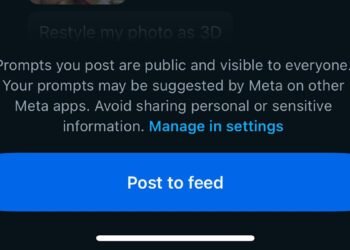Back in 1999, at the start of the dotcom boom that would, ultimately, revolutionize business, culture, society and the whole world, musical genius David Bowie was interviewed by one of the most cynical British journalists, Jeremy Paxman.
Paxman called the web a flash in the pan and just another technical tool, nothing far-reaching. Bowie pushed back and said the potential of the internet for society — good and bad — was unimaginable. “We’re on the cusp of something exhilarating and terrifying,” he added. “It’s not a tool, it’s an alien life form.”
The rest is history. The now sadly departed Bowie was spot-on and the cynical journalist was plain wrong.
Substitute the word internet for artificial intelligence and we are in exactly the same position 26 years on as we were in 1999. But the dichotomy in views still exists.
The first AI in PR survey, produced by PRWeek in partnership with Boston University, surveyed over 700 PR pros and it’s an exceptionally credible sample group.
It shows a tremendous appetite for AI innovation and collaboration among employers, while at the same time employees’ own use of AI remains limited. But everybody perceives that their peers are using AI much more extensively than they actually are, so there’s an element of FOMO here, too.
As such, there is a keen appetite among PR pros to learn from others’ experiences with AI and to share their own best practices with others. This will very much be the function of PRWeek and our sibling titles Campaign and MM+M’s AI Deciphered Conference in New York City on November 13.
While the appetite is there, PR pros surveyed report relatively low levels of organizational readiness and are frustrated by a lack of innovation and collaboration from the top. But they also report that AI is not really compatible with all aspects of their work and the human expertise of PR pros is still key.
There is also a legitimate concern that, while it will definitely speed up workflow, AI used improperly will dull critical thinking and creativity — so it’s more important to get robust structures and policies in place rather than being first to market.
The AI in PR survey dug down into the different attitudes of comms professionals from a generational point of view. Gen X and millennials tend to use AI more in their work than baby boomers, which is maybe not that surprising, but also Gen Z, which had the least eagerness to learn about AI from others’ experiences and saw the least value in using AI for their work compared to other generations.
There are so many interesting findings in this first survey of its kind, which is supplemented by a Premium Edition that dives even more deeply into the data. It’s well worthy of close study by everybody in the industry, no matter which part you work in.
As Bowie concluded in 1999: “The context and the state of content is going to be so different to anything we’ve ever envisaged.”














